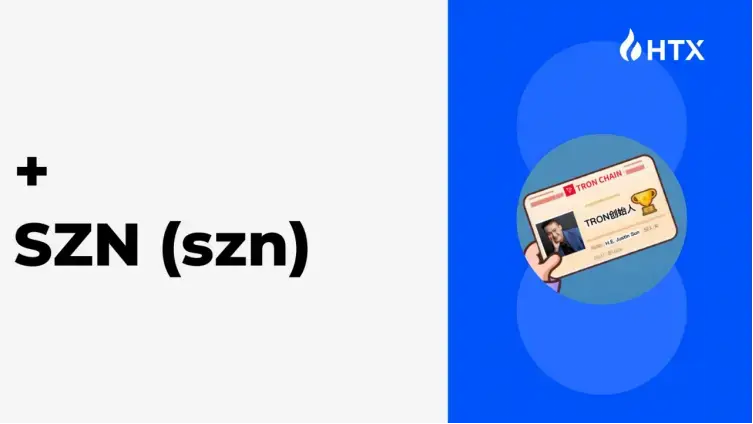Once again victorious: Spreading false information about Sun Yuchen being "investigated by the FBI" may incur legal liability
On the first day of 2025, blockchain celebrity Sun Yuchen revealed on social media that he had won a lawsuit. The information displayed on the social platform shows that Sun Yuchen won a first-instance lawsuit against a well-known portal for defamation. The case involved the rumors that had caused a frenzy in the national media a few years ago about Sun Yuchen being "investigated by the FBI." Last year, Sun Yuchen had already won a lawsuit against the Chongqing Business Media Group for publishing reports related to him being "investigated by the FBI," and the Chongqing Business Media Group publicly apologized to Sun Yuchen in accordance with the judgment.
The false information involved in these two lawsuits originated from a report published by the American tech media The Verge in 2022. In the original report, the author specifically stated that he could not confirm whether the SEC, IRS, FBI, or the Southern District of New York Prosecutor's Office were investigating Sun Yuchen. The authenticity of the information could not be verified from the source.
However, during the dissemination process in domestic media and self-media, the content that the author could not verify was directly treated as fact, and some media even created secondary content based on unverifiable information. Ultimately, after the frenzy of traffic, they all paid the corresponding legal price.

Sun Yuchen is a hot figure and a marketing expert. His mutual achievement with hot topics not only showcases the immense power of internet marketing but also makes him a continuous source of traffic. However, this does not mean that the dissemination of false information related to him by media and self-media carries no legal risks. The judgments in the aforementioned two cases indicate that those who directly publish or spread eye-catching rumors such as Sun Yuchen being "investigated by the FBI" and cause adverse consequences must bear legal responsibility.
The right to reputation has gradually gained attention as a personal right in the past twenty years. Related disputes often involve controversy, and the parties involved frequently do not win due to the lack of clarity in relevant legal details. However, with the increasing number of litigation cases in recent years, the number of victories has also increased.
The victory of Sun Yuchen in his defamation case was a result that had long been predetermined by legal principles. A similar story occurred over 20 years ago. A well-known figure in Chinese football, "General Fan" Fan Zhiyi, also won a similar lawsuit in 2002. The circumstances of Sun Yuchen's two victories are strikingly similar, as both involved media reprinting content from another source that had not verified the relevant report, leading to defamation disputes, and both ended with the party spreading false information losing the case.
On June 14, 2002, the Oriental Sports Daily reprinted a report from the Sports Weekly stating that "there were rumors that Fan Zhiyi was involved in match-fixing." Although the Oriental Sports Daily later clarified the truth with the article "The Truth Finally Emerges: Fan Zhiyi Was Not Involved in Match-Fixing," it lost the subsequent lawsuit and publicly apologized, compensating 50,000 yuan for mental damages.
Many media outlets flocked to re-transmit the news of Sun Yuchen being "investigated by the FBI," primarily based on the belief that "the moon is rounder abroad," assuming that content reported by foreign media was entirely problem-free. Additionally, the FBI is a concept filled with mystery in China, and this combination led some media and self-media to fall into a frenzy of traffic.
Today, the internet offers various ways and media for information dissemination, and its convenience can easily lead people to believe that forwarding such messages is a personal freedom, with no connection to infringement. Zhu Wei, deputy director of the Communication Law Research Center at China University of Political Science and Law, clearly pointed out in the Legal Daily that from the perspective of communication law, if the content infringes, then the act of forwarding is no different from direct publication; both are direct infringements, and as a forwarder, there is indeed an obligation to verify the authenticity of the content.
This also means that not only media with the power to report news but also individuals active on various social media platforms cannot recklessly spread false information about others in order to gain traffic and attention.
In recent years, there has been a saying that "cyberspace is not a lawless land." We have seen many people use internet traffic to change their fate, earn wealth, and even achieve class leaps. Everyone is part of this web, and perhaps one day, without realizing it, one becomes the center of attention, a figure under the public spotlight. Sun Yuchen's two victories remind us of two points: publishing or spreading false information may incur legal consequences, but at the same time, if one becomes the person whose rights are infringed, one can actively use legal means to protect their legitimate rights and interests.










